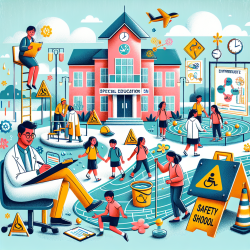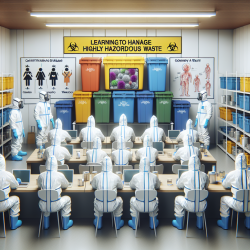Introduction
The field of academic urology is facing significant challenges, as highlighted in the research article A Contemporary Review of Barriers and Methods to Fostering Academic Urologists. This article identifies key barriers and proposes strategies to mitigate them, providing valuable insights for practitioners looking to enhance their skills and career prospects.
Key Barriers in Academic Urology
The research identifies several barriers that discourage urology residents from pursuing academic careers:
- Lack of Research Exposure: Many medical students and residents lack early exposure to research, which is crucial for fostering an interest in academic medicine.
- Inadequate Mentorship: The absence of effective mentorship can hinder career development and discourage residents from pursuing academia.
- Physician Burnout: High levels of burnout, exacerbated by the demands of the "triple threat" concept, deter many from academic careers.
- Financial Concerns: Medical student debt and perceived income disparities between academia and private practice are significant deterrents.
Strategies for Overcoming Barriers
To address these challenges, the research suggests several strategies:
- Enhancing Research Exposure: Medical schools and residency programs should provide ample opportunities for research engagement. Creating platforms for students to connect with academic mentors can spark interest in academic careers.
- Improving Mentorship: Establishing formal mentorship programs can provide guidance and support, helping residents navigate their research and career paths effectively.
- Addressing Burnout: Institutions should implement wellness programs, resilience training, and mental health support to reduce burnout and improve work-life balance.
- Financial Education: Providing financial planning resources can help residents manage debt and understand the financial implications of academic careers.
Encouraging Further Research
Practitioners are encouraged to delve deeper into the research findings and explore how these strategies can be tailored to their specific contexts. By fostering a culture of continuous learning and adaptation, practitioners can enhance their skills and contribute to the growth of academic urology.
Conclusion
The insights from this research offer a roadmap for practitioners to overcome barriers and pursue rewarding careers in academic urology. By implementing these strategies, practitioners can not only improve their skills but also contribute to the advancement of the field.
To read the original research paper, please follow this link: A Contemporary Review of Barriers and Methods to Fostering Academic Urologists.










